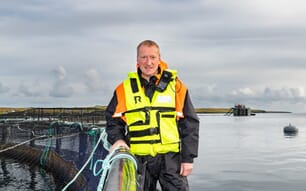Pamela Parker, Executive Director of Atlantic Canada Fish Farmers Association said: "They will, in fact, strengthen environmental protection measures, ensure greater public reporting and transparency while at the same time allowing farmers to continue to grow healthy and sustainable seafood in a responsible manner.
"The Fisheries Act was created at the time of Confederation – when commercial aquaculture in Canada did not exist. The proposed regulations will help to modernize aquaculture regulation and don’t cover just salmon farming. The proposed regulations cover all aquatic species farmed in Canada, including trout, clams, mussels and oysters to name a few – in both freshwater and the oceans.
"Canada’s aquaculture industry is now regulated by no fewer than 10 federal agencies in addition to provincial ones too. The regulations and rules often overlap and are even contradictive in many cases, making it cumbersome for operators and confusing for the public.
"The proposed regulations will now set clear parameters around issues such as how mussel farmers can remove invasive species such as sea squid from their mussel socks; how barnacles can be removed from equipment; or how salmon farmers use sea lice treatments and feed their fish. Although these matters are largely covered in provincial regulation, they will now be articulated within a clear, federal regulation.
"Aquaculture is one of Canada’s most promising industries. We produce one of the healthiest proteins in the world. The regulations governing our industry need to be updated and modernized if we want it to continue to evolve and meet the growing demand for seafood.
"None of the proposed regulatory changes will change the way sea lice treatments are approved or used in Canada. Only treatments that have undergone extensive risk assessments by Health Canada to ensure they are safe for salmon and other species, the environment and human health are registered for use. Farmers have access to two approved bath treatments for sea lice management – both used under the direction of a veterinarian and by prescription.
"Based on independent field research conducted right here in New Brunswick, Canadians can be confident the use of Salmosan or hydrogen peroxide pose very little risk to the marine environment and to fisheries. The risk assessments conducted on each product plus an independent review by the Canadian Science Advisory Secretariat also comes to this conclusion. The treatments used in Canada have been used in other countries in Europe for more than a decade.
"The aquaculture industry will continue to be regulated and monitored by both the provincial and federal governments. We will always have to consider the Fisheries Act. We welcome that. The proposed regulations address that. There are Fisheries enforcement officers from both the federal and provincial governments on the water. They stop at our farms on a regular basis and inspect records and operations. This will continue to be the case. The proposed regulations do not change that.
"Our farmers have built this industry and co-existed with traditional fishermen for nearly 40 years. Many of our salmon farmers are lobster fishermen too. We are partners in a diversified economy so important for New Brunswick. As our industry has grown, so too have the lobster catches."

